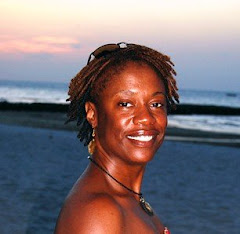
Wow, what a wild ride! I spent half of yesterday exhilarated about President Obama winning the Nobel Peace Price, and then the rest of the day processing some of the wildly disparate reactions worldwide.
NEWS
Applauding the ‘second Kenyan’ to win the prize
Last November, after I described what Barack H. Obama’s election to the US Presidency meant to me as an African American, one of my Daily Nation colleagues posed a provocative question: “Why is it that whenever African Americans reflect on a major accomplishment, they always evoke their history of oppression?”
Well, on the day after the first African American president was also awarded a Nobel Peace Prize, I would like to pose an equally intriguing query: Why is President Obama being called the second Kenyan to win a Nobel Prize? I am not raising this issue to pick a fight, or suggest that it dampens my extraordinarily joyous emotion.
Rather, I am inquiring about that Kenyan label for President Obama because over the past year, I’ve been at turns delighted and puzzled by Kenya’s relationship with him. I felt unusually lucky to experience Election Day on his ancestral soil, but I also spent a lot of time cautioning that his Kenyan link would be tenuous at best.
Sure enough, when America’s Kenya policy began focusing less on blood ties than on post-election blood-letting, the bloom fell off the rose. When his first visit to the continent did NOT include a trip to the Kenyan Mamaland, that rose withered considerably.
And when the meddlesome nexus of Ranneberger, Clinton, Ocampo, and Annan became too much for proud Kenyans to bear, I considered booking my safe passage to JKIA before the forced deportation of Americans began.
But for now, I breathe a bit easier, because a “second Kenyan” has been awarded one of the highest honours known to humankind. I find it both funny and touching, this desire for a largely oppressed people to claim a global success story as their own.
To me, it embodies an innate craving for recognition by a group of people who endured extraordinary challenges and disenfranchisement, and who may still face considerable trials. They want the world’s acknowledgement that “one of our own” has done us proud. Perhaps Africans and African Americans are not so different, after all!
Granted, I still wish I were in Washington, DC, just for the next week. If I were in America, it would be more than appropriate for me to cry openly, because other black Americans would likely be teary-eyed too.
When President Obama and I were toddlers, Americans of African descent were still being lynched and beaten and cruelly discriminated against throughout the American South. And yes, 40 years later, a new day has dawned.
Perhaps we should just “get over it” and focus on the way forward, instead of peering over our shoulders at the past. So, let’s just applaud this African American, or Kenyan — or maybe we just settle on “extraordinary human being of African descent” — whose bright gleam is being cast around the globe.





No comments:
Post a Comment